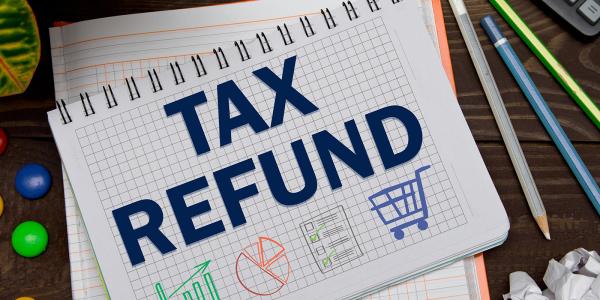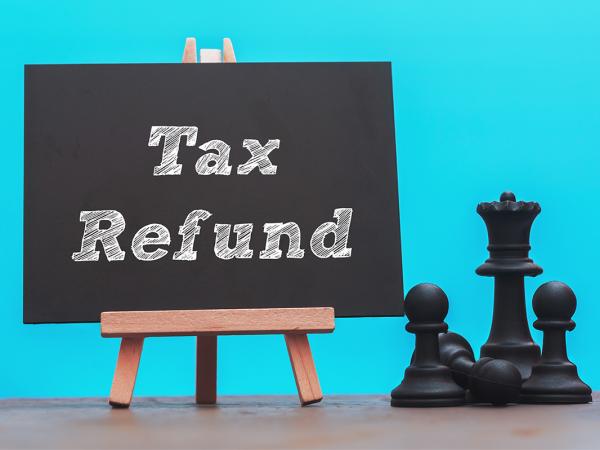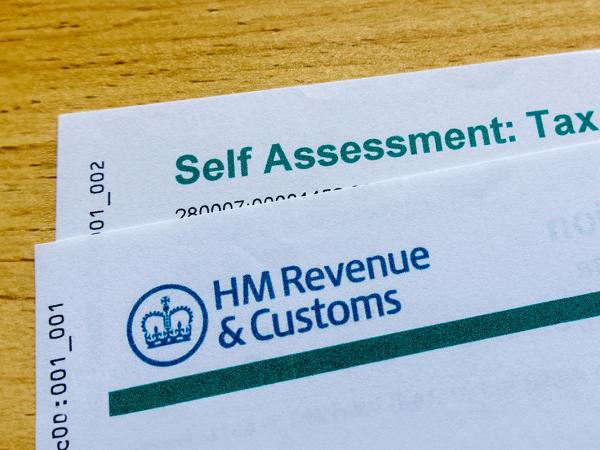Self assessment tax refunds
If you complete a tax return and you overpay tax, you do not usually need to submit a separate claim for repayment. You claim your tax repayment through your self assessment tax return. Here, we explain how.

Content on this page:
Overview
If you overpay tax on your income and you complete a self assessment tax return, HMRC will deal with your repayment once they have processed your tax return.
You can state in the tax return how you would like the repayment to be paid to you. You can have it:
- paid directly into your bank account, or
- paid to you by cheque.
Please note that sometimes HMRC will not follow your instructions and will make repayments back to the last credit or debit card used to make payment on the self assessment account. HMRC do provide warnings that this will happen, for example on both the tax return form and notes, however many taxpayers will no doubt be caught out.
Where there is another self assessment tax liability becoming due within the next few weeks, for example, a first payment on account for the following tax year, any amount available for repayment will be reduced by the sum required to cover the liability (or liabilities) ‘becoming due’.
Alternatively, if you owe HMRC another amount, for example, a tax credits overpayment, you might ask them to manually offset the repayment against that amount. This means they will take the amount you are due to be repaid off the other amount you owe. They will then repay any remaining repayment or you will have to pay the rest if you still owe HMRC something. You will have to contact HMRC to discuss your requirements.
Timing
You can complete your tax return any time after the end of the tax year and before the submission deadline. The sooner you submit your tax return, the sooner you should receive your repayment (or offset). If you submit your tax return online rather than on paper, it might be dealt with sooner and you will get your repayment faster.
Once HMRC have processed a self assessment tax return, most repayments will be issued automatically where there is a request for repayment on the return. You may need to prompt HMRC to issue refunds in certain cases, for example, where you do not state how you would like to receive the repayment on the return, the amount involved is small or where any signals are present which inhibit (stop) automatic issue – this can happen for a variety of reasons and HMRC have to look at them before they can be released.
If you file your tax return online, you can prompt a repayment by logging into your HMRC online services account and clicking ‘Request a repayment’. Otherwise, you can contact HMRC to request repayment.
Security checks
HMRC sometimes want to check some things before sending your repayment, as part of their aims to prevent people claiming tax back fraudulently. This is not the same as HMRC opening an enquiry into the figures on your tax return.
If you have been waiting several weeks to hear back from HMRC about your refund, we suggest you contact them to find out what is happening. Note that in these situations, even though the amount might look as if it is available for repayment in your online account, clicking ‘Request a repayment’ will probably not help speed things up.
Historically, security checks seem to happen most often in connection with Construction Industry Scheme refunds – probably due to the fact that refunds can be significant and because there can sometimes be problems involving unscrupulous agents. In some cases, HMRC may write to you before issuing the refund to check some things. If you are unsure how to respond to HMRC’s letter, please consider obtaining some advice. We tell you how you can find a tax adviser, including through the tax charities, on our page Help with tax from friends, family, professionals or other organisations.
More recently, HMRC have started sending out letters to verify repayment claims more widely, in response to an increase in repayment fraud. These letters are sent from ‘Indiv and Small Business Compliance Direct Tax Repayment Credibility’.
Where HMRC’s risk assessment identifies that a repayment claim is likely to be fraudulent, they will not make the repayment unless they receive a response to the letter. If no response is received the person is removed from the self assessment system and the repayment is not made. The letter asks for information and copy documents to enable HMRC to verify the taxpayer’s identity. You can read about what to do if you get one of these letters on the page Tax refunds.
Excess payments on account
If you are in self assessment, you may have to make payments on account of your next year's tax bill.
If you do not reduce them (or reduce them sufficiently) when completing your tax return, and this results in paying too much by way of payments on account, you can still claim to reduce them and request a refund of the amounts overpaid (which, in practice, you would do by completing form SA303). This might apply, for example, because you have stopped working in the year that you have paid them for.
Once HMRC have processed your form SA303, a credit may appear in your self assessment account. Providing there are no other liabilities becoming due that HMRC can use the credit against, if you file your tax return online, you can trigger the release of the credit by logging into your HMRC online services account and clicking ‘Request a repayment’ or otherwise, by contacting HMRC to request repayment.
Making a mistake
Sometimes you may make a mistake on your tax return and pay too much tax as a result.
In this situation, you need to amend or correct your tax return first within the appropriate deadline. Once HMRC have processed the amended tax return, they will send you any repayment due or offset it against other amounts that you owe.
However, any refund will not be automatic; you will have to prompt HMRC to issue it. You can do this by logging into your HMRC online services account and clicking ‘Request a repayment’ or by contacting them to request repayment.
Out of time to correct a mistake
If you made a mistake in your tax return, and paid too much tax, but only realise after the deadline for amending the tax return has passed, you may still be able to claim a repayment of overpaid tax. This is called overpayment relief. Overpayment relief must be claimed within four years from the end of the tax year in question. Therefore, if you realise you have made a mistake in the 2021/22 tax year, you will now be out of time to make an amendment (the deadline for which would have been 31 January 2024), but you have until 5 April 2026 to submit an overpayment relief claim.
In this situation you will need to write to HMRC and tell them about your mistake. You can write to HMRC using the postal address on the most recent correspondence you have from them, or you can use the contact details on HMRC’s website.
Your letter should:
- give your full personal details – your name, address, National Insurance number and unique taxpayer reference (UTR),
- refer to the tax year to which the repayment relates,
- state that you are making a claim for ‘overpayment relief’,
- include as much information as possible about why you think you have paid too much tax and the mistake you made,
- enclose evidence of the tax that you have paid, including copies of P60s and P45s if you have them – keep the originals,
- say how you would like to receive any repayment – you can have it paid directly into your bank account, paid by cheque, or deducted from your next self assessment tax liability, and
- be signed and dated in ink – you should declare that the details you have given are correct and complete to the best of your knowledge.
Keep a copy of your letter and any enclosures and ask the Post Office for a proof of posting in case of later query.
More information
The time limits for claiming back overpaid tax are set out on the page Tax refunds.
HMRC have guidance on amending your return, which includes information on how to claim overpayment relief.
HMRC’s internal guidance sets out their rules on making repayments to bank cards.
HMRC’s guidance sets out their monetary limits for automatic repayments.
HMRC may inhibit automatic repayments in certain circumstances set out in their internal guidance.



